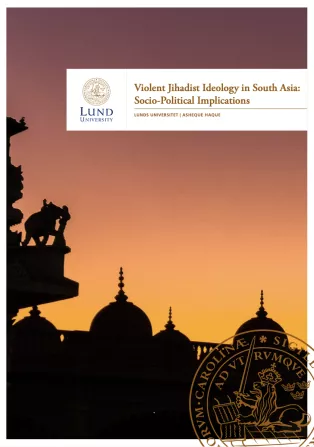Violent Jihadist Ideology in South Asia: Socio-Political Implications
Throughout the summer of 2020, violent extremist organizations continued their activities in South Asia. Though violence is a major element in jihadist ideology, this report directs our attention to the wider implications of jihadi propaganda. Values concerning rights, democracy, and equality are all subverted and targeted by jihadi political messaging, working to the detriment of local and international development efforts under Agenda 2030.
South Asian societies have faced further strains regarding the civil and political rights of their citizens, as the ruling governments have exercised increased power in the name of controlling the ongoing pandemic. Fundamental rights of citizens have been restricted, further polarizing public opinion and increasing communal tensions. As such, the conditions in South Asia remain favorable to violent jihadist organizations continuing their public outreach and radicalizing activities by exploiting these societal vulnerabilities. This report elaborates how violent jihadist entities influence the existing narratives within these societies and attack some of the fundamental characteristics of modern society.
Find the full report here.
About the author
Asheque Haque is a political and security researcher on South Asia. He has worked as a countering violent extremism professional at the international level and has led multiple projects in the field. His research includes violent extremist propaganda, jihadi ideology in Bangladesh, security challenges and practices in the region, among others.
He can be found on Twitter as @ashequeh

